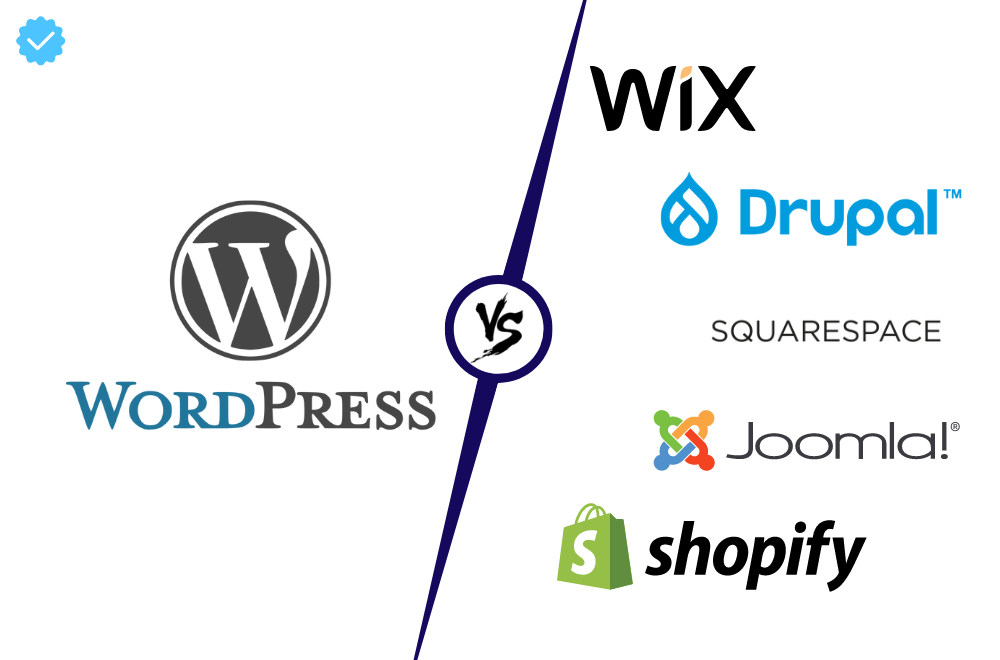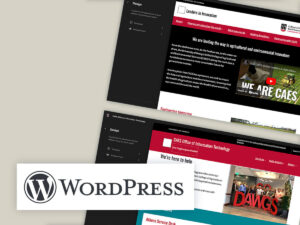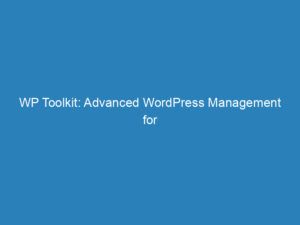
Choosing the Right CMS: A Comprehensive Comparison of WordPress and Alternatives
In today’s digital landscape, having a well-crafted website is essential, not just a luxury. For newcomers to web development, selecting the right content management system (CMS) is a pivotal decision. A CMS serves as the backbone of your website, enabling you to create, modify, and manage content with ease, even without extensive coding knowledge.
Understanding CMS
A content management system (CMS) simplifies the process of building and managing a website. With a CMS, you don’t need to be a coding expert; these platforms often feature a WYSIWYG (What You See Is What You Get) interface that allows users to edit content visually. Moreover, many CMS solutions come equipped with pre-designed templates and themes that enhance the visual appeal of your site. You can also extend functionality through plugins and modules tailored to meet your specific needs.
WordPress: The Leading CMS
Among the plethora of CMS options available, WordPress stands out as the most popular platform, commanding a remarkable 63% market share. Valued at approximately $7.3 billion, it serves around 1.2 million users monthly, powering 43% of all websites globally. From iconic bands like the Rolling Stones to major news organizations and even government sites, WordPress caters to a diverse array of users.
Initially developed as a blogging tool, WordPress has grown into a robust platform capable of supporting various website types. Its simplicity and the extensive range of plugins make it a go-to choice for many. Whether you’re looking to add a new feature to your blog or seeking comprehensive functionality, there’s likely a plugin available to fit your requirements.
Key Features of WordPress
WordPress’s supremacy in the CMS arena can be attributed to several standout features:
- Easy Setup: Installing WordPress is straightforward, taking only a few minutes. Its user-friendly interface resembles common applications like Microsoft Word, making it accessible for beginners.
- Customizability: With thousands of free and premium themes and plugins available, WordPress allows for unprecedented customization, suited for everything from personal blogs to complex e-commerce platforms.
- SEO-Friendly: WordPress is designed to support good SEO practices. Various plugins help optimize content, analyze keywords, and enhance your site’s visibility, driving more organic traffic.
- Strong Community Support: WordPress boasts a vast and active user community. Whether you’re a novice seeking help or an experienced user tackling a specific issue, numerous tutorials and forums are available to assist you.
- Responsive Design: Many WordPress themes are responsive, ensuring your site looks great on all devices, from desktops to smartphones.
Comparing WordPress with Other CMS Platforms
While WordPress is a formidable contender, it’s essential to consider other CMS options that might suit your needs better:
Drupal
Drupal is recognized for its strength, security, and scalability. It targets larger projects that demand advanced features but comes with a steeper learning curve compared to WordPress. Drupal is ideal for users with coding skills and offers robust customization options. Though it has a smaller community than WordPress, Drupal provides valuable resources for its users.
Joomla
Joomla is another strong alternative that strikes a balance between WordPress and Drupal. It offers a user-friendly interface along with a rich library of themes and extensions. Joomla is ideal for those seeking more functionality than WordPress offers but without the complexity of Drupal.
Wix
Wix provides a drag-and-drop interface that simplifies website creation, making it appealing for those looking for a straightforward online presence. However, if you require extensive features or customization, you might find WordPress to be a more suitable option.
Squarespace
For those prioritizing design, Squarespace offers a visually appealing platform with user-friendly editing capabilities. While it competes well in aesthetics, it may fall short in flexibility and functionality compared to WordPress, particularly for more complex needs.
Shopify
Shopify is tailored for e-commerce, offering an intuitive setup for online stores. While it excels in simplifying product sales, it comes with limitations regarding SEO features and customization, making WordPress a better choice for those needing more control over their website.
Ultimately, the right choice of CMS depends on your specific goals and requirements. Whether you’re looking for ease of use, advanced functionalities, or robust design options, understanding the strengths and limitations of each platform will guide you to the best decision for your online presence.

